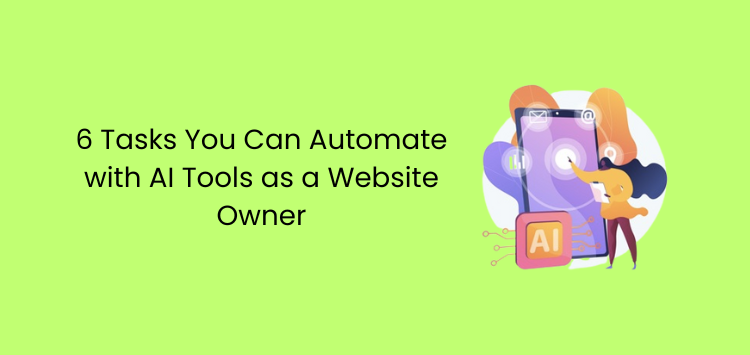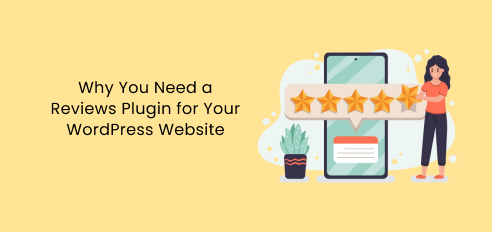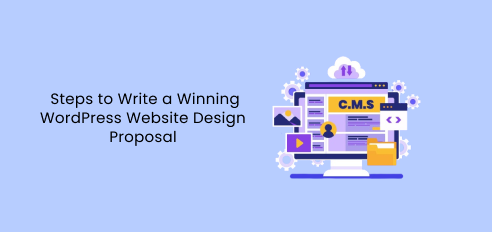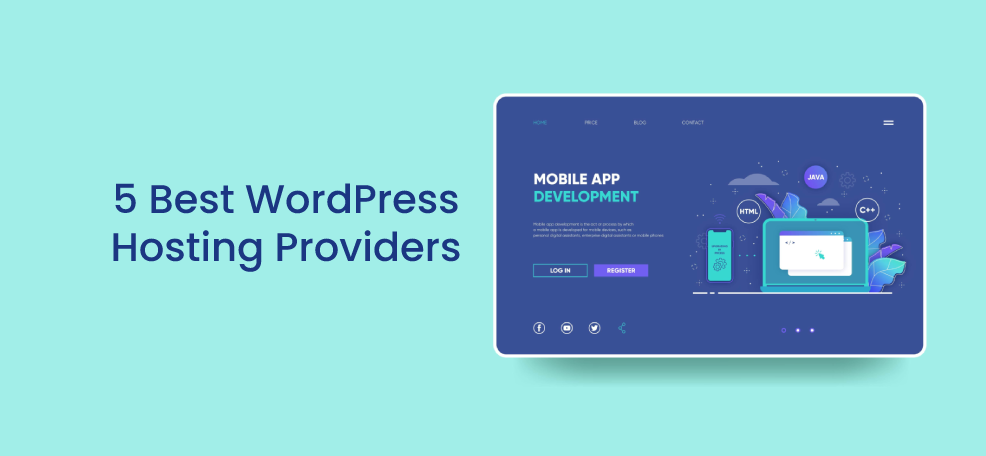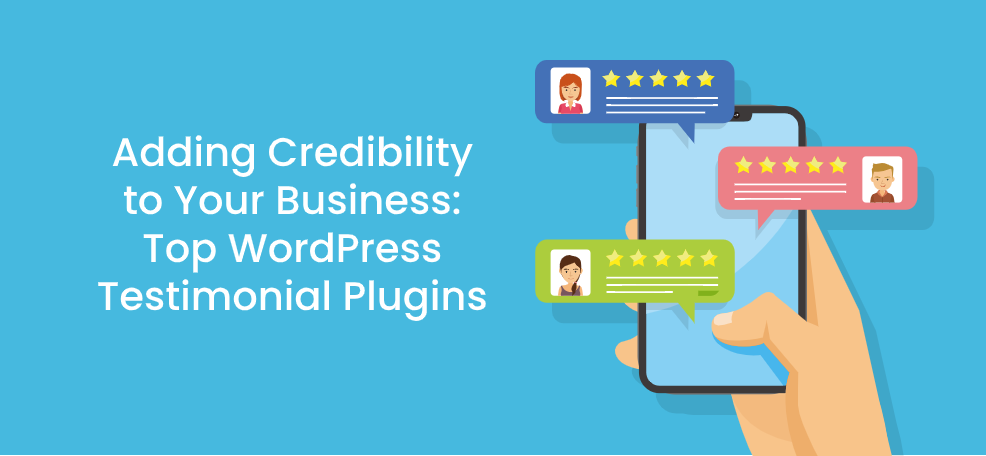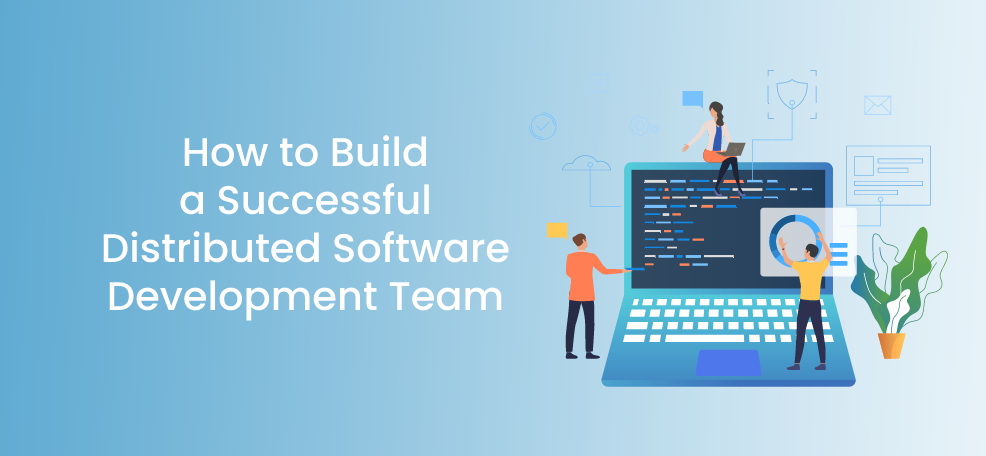Do you feel overwhelmed when you have a lot of tasks to juggle as a business or website owner? You’re not alone in this.
From designing your website and creating content to managing customer inquiries and improving your site’s SEO, there’s always something that needs to be done. Fortunately, you don’t have to do it all on your own. With the help of AI tools, you can automate many of the repetitive and time-consuming tasks that come with running a website.
Content Creation
Social media adoption has pushed the need for impactful, relevant content by businesses of all sizes. As a website owner, you need to constantly create new and engaging content to attract and retain visitors. However, creating content can be a time-consuming and challenging task. This is where AI tools can come in handy.

AI tools like Articoolo and Wordsmith can help you create high-quality, unique content in a matter of minutes. These tools use advanced algorithms to analyze your topic and generate content that is tailored to your specific needs. They can also help you optimize your content for search engines and ensure that it is free from errors and plagiarism.
The tools for content creation may vary depending on your needs. For example, you can use Jasper.ai or Copy.ai to create marketing copy for your products and services while using Microsoft Designer to create banners and blog post covers for your website.
These AI tools do not eliminate the need for content creation but it makes it a whole lot easier than if you were creating content from scratch.
However, while AI tools can be a great help in content creation, they should not be used as a substitute for human creativity and expertise. It’s important to use AI tools as a supplement to your own content creation efforts and not rely on them entirely.
Chatbots for Customer Service
Another task that can eat up a lot of your time as a website owner is managing customer support. However, with the help of AI chatbots, you can automate much of this process.
Chatbots can handle basic customer inquiries, such as answering frequently asked questions or providing product information. They can also provide personalized recommendations based on a customer’s previous interactions with your site.
Chatbots can be integrated into your website or mobile app and can be customized to match your brand’s tone and style. They can be programmed to answer frequently asked questions, provide support for specific products or services, and even handle more complex queries using natural language processing.
One of the biggest benefits of chatbots is their ability to provide 24/7 customer service, without requiring a dedicated team to be available around the clock. This means that visitors to your website can get the information they need at any time of day or night, improving their overall experience with your brand.

Website Design
Why spend all your efforts on designing your website when you can simply automate the process?
Designing a website that is both visually appealing and user-friendly is crucial for any website owner. However, the process of designing a website can be time-consuming and requires specialized skills. In the past, you’ll need to hire a couple of people including web designers to create your website. But today, you can use technology to generate domain names, and set up and build your website without having to hire so many people.
AI-powered website builders like Wix ADI can help you create professional-looking websites automatically. These tools can create professional-looking websites quickly and easily, without requiring any coding or design experience.
In addition to website builders, AI tools can also assist in website design by generating custom layouts, colour schemes, and typography based on your preferences. AI-powered design platforms like Canva and Adobe Spark allow you to create stunning graphics and designs in minutes, without any design experience.
Another way AI can help with website design is through A/B testing. A/B testing involves creating two different versions of a webpage and testing them to see which one performs better. AI-powered A/B testing tools like Optimizely and Google Optimize can automate this process, allowing you to test different design elements like layouts, colors, and call-to-action buttons.
Email Marketing
Email marketing is an important tool for website owners, but it can also be time-consuming which is why a lot of businesses focus on automating much of the process. Limited budgets and hands-on help are some of the reasons that businesses are adopting modern tools that can streamline the process for them. With the help of AI tools like Persado and Phrasee, you can automate much of the email marketing process.
AI tools like Zeta email can help you personalize your emails by analyzing data about your subscribers and generating personalized content based on their interests and behaviour. For example, you can analyze a subscriber’s past purchases and suggest products or services that they may be interested in.
Also, the subject line of your email is the first thing that your subscribers will see, and it can have a significant impact on whether or not they open your email. You can optimize your subject lines by comparing different ones to see which ones get the most attention, opens or clicks from your subscribers.
Whether you have millions of subscribers or just a few thousand, there are many AI tools on the market that you can consider when defining and upgrading your email marketing efforts. Take advantage of them to get better results.
Social Media Management
Managing your social media accounts can be a full-time job in itself. However, with the help of AI tools like Hootsuite and Socialbakers, you can automate much of the social media management process. These tools can help you schedule posts, analyze engagement metrics, and even suggest content to share with your followers.
Here are some of the tasks you can automate with AI tools as a website owner:

Scheduling Posts
One of the most time-consuming aspects of social media management is creating and scheduling posts. With the help of AI tools like Hootsuite and Buffer, you can schedule your social media posts in advance, saving you time and allowing you to maintain a consistent posting schedule. These tools also provide features like content curation and post recommendations, making it easier to find relevant content to share with your audience.
Social Listening
Social listening involves monitoring social media conversations and mentions of your brand, products, or services. This can help you identify customer feedback, sentiment, and trends, and respond to customer inquiries and complaints in a timely manner. AI tools like Sprout Social and Brandwatch can help you automate social listening by monitoring keywords, hashtags, and mentions across multiple social media platforms, and providing real-time alerts and analytics.
Influencer Marketing
Influencer marketing involves partnering with social media influencers to promote your brand, products, or services to their followers. This can be an effective way to reach a wider audience and increase your brand awareness. AI tools like Grin and Upfluence can help you automate the process of finding and collaborating with influencers by providing insights into their audience, engagement, and reach.
Social Media Analytics
Analyzing social media data can provide valuable insights into your audience, engagement, and performance. However, manually analyzing data can be a time-consuming task. AI tools like Google Analytics and Sprout Social can help you automate social media analytics by providing real-time insights into key metrics like engagement rates, click-through rates, and follower growth.
Search Engine Optimization
Improving your website’s SEO can be complex. However, with the help of AI tools like Yoast SEO and SEMrush, you can automate much of the process.
Search engine optimization, or SEO, is the practice of optimizing your website to rank higher in search engine results pages (SERPs). It involves a variety of techniques, including keyword research, on-page optimization, and link building, all with the goal of making your website more visible to potential visitors.
As a website owner, SEO is a crucial aspect of running a successful website. Without effective SEO, it can be difficult for potential visitors to find your website, which can ultimately impact your bottom line.
One way to automate some aspects of SEO is through the use of AI tools. For example, tools like SEMrush and Ahrefs can help you identify relevant keywords and track your website’s performance in search engine rankings. These tools can also analyze your competitors’ websites to help you identify areas for improvement.
Another area where AI tools can be helpful for SEO is content optimization. Tools like Yoast SEO and MarketMuse can help you optimize your website’s content for search engines, making it more likely to rank higher in search engine results pages. These tools can analyze your content and suggest improvements, such as adding relevant keywords, improving readability, and enhancing the overall quality of your content.
AI tools can also help you with link building, which is another important aspect of SEO. Tools like BuzzStream and Pitchbox can help you identify potential link-building opportunities and automate the outreach process, making it easier to build high-quality backlinks to your website.
Final Thoughts
There are many thoughts on whether artificial intelligence tools are here to replace real humans or take over their jobs, however, this is one instance where opposing parties will agree that – AI tools, when used rightly, can transform and improve business productivity. As a business owner, consider automating SEO, content creation, email marketing and the likes with AI tools to increase business productivity and boost sales.
